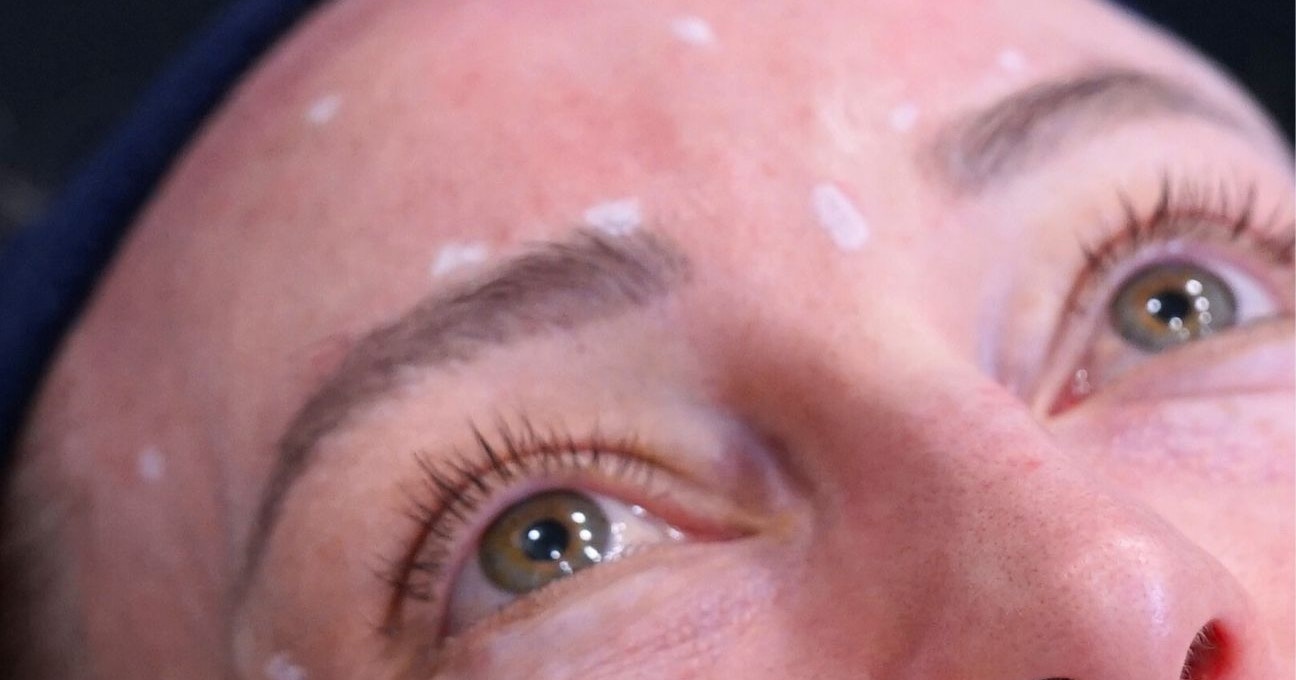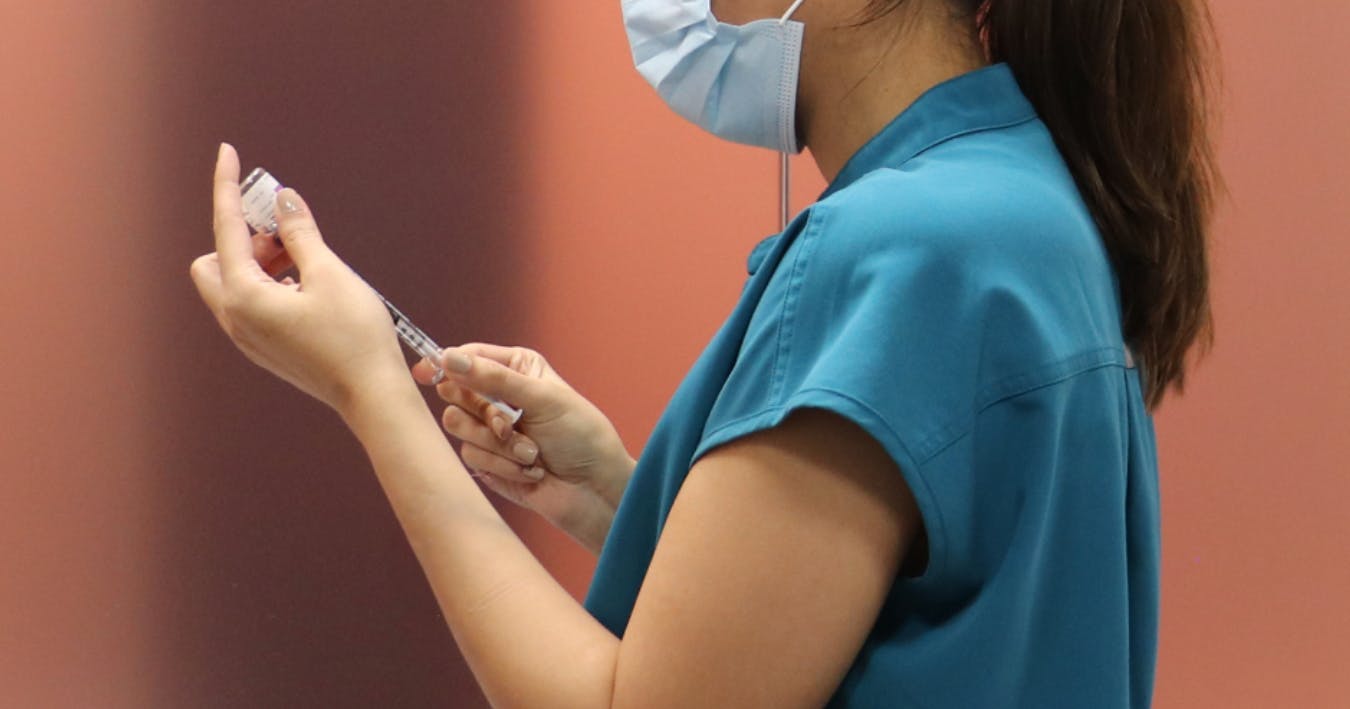Can Aesthetics Practitioners Inject Their Own Botox?

The question of whether aesthetics practitioners can inject their own botox has resurfaced. This is largely thanks to a number of viral social media videos showing cosmetic doctors self-injecting.
It’s worth noting that much of this content originates from the USA. The UK has strict rules around this and they’re something every medical aesthetics practitioner should be aware of.
To clearly set out the facts and ethics of this situation, we spoke to aesthetic medicine specialist and Harley Academy clinical trainer, Dr Lindsay Jones.

Are UK aesthetic practitioners allowed to inject their own botox?
“Although the question is ‘can’ aesthetics practitioners inject their own botulinum toxin, I would argue the better question is ‘should’ they?”, says Dr Lindsay.
“There are many issues to consider here. Firstly given that botulinum toxin is a prescription-only medication, should medics be self-prescribing?
“Secondly is it legal? Thirdly, is it physically possible to safely administer an injectable treatment on yourself?”
She confirms, “The short answer to all of these questions is no.”
Self-prescribing toxin goes against regulatory board guidelines
“In the UK, medical professionals are governed by their relevant regulatory boards,” notes Dr Lindsay.
These are:
- General Medical Council (GMC) for doctors
- Nursing and Midwifery Council (NMC) for nurses
- General Dental Council (GDC) for dentists and dental therapists
- General Pharmaceutical Council (GPhC) for clinical pharmacists.
She continues, “The GMC Good Medical Practice guidelines are very clear when it comes to self-prescribing.”
These state that, “wherever possible, you must avoid prescribing for yourself and anyone you have a close personal relationship with”.
Self-prescribing is taken very seriously by regulators
Dr Lindsay counsels, “Aesthetics practitioners should understand that the GMC takes this [self-prescribing] seriously. It has additionally released specific guidance on this which states that doctors breaching these guidelines ‘will call into question their fitness to practise’.
“Interestingly, this guidance also applies to medical devices, which would include fillers.
“Similarly, the GDC has released guidance for dental practitioners stating simply ‘you must not prescribe medicines for yourself’.
“Equally, guidance from point 18.5 of NMC’s The Code states that ‘wherever possible, avoid prescribing for yourself or for anyone with whom you have a close personal relationship’.
“So,” she concludes, “the guidance from regulatory boards for all medical professionals is clear. We should not be prescribing for ourselves as it would call into question our fitness to practise.”
Non-medics are not currently subject to regulatory oversight
Given non-medics cannot be prescribers, the issue of self-prescribing botulinum toxin is somewhat moot. The concerns around self-injecting remain, though.
Dr Lindsay notes, “Currently, there’s no mandatory regulator for non-medical aesthetics practitioners.
“However, the Joint Council for Cosmetic Practitioners (JCCP) is working with the government on introducing legislation and a licence to practise for all aesthetic practitioners by 2026. This will hopefully include similar sentiments regarding self-prescribing and self-administration.”
Whilst not every medical aesthetics practitioner is a prescriber, the vast majority are. For those who are not - some cosmetic nurses, for example - self-injecting is the main concern.
Is injecting your own botox illegal?
“Whilst it goes against the codes we sign up to as medical professionals, it is currently not illegal to inject your own botox,” confirms Dr Lindsay.
“It is, however, unethical and definitely inadvisable.
“Consider the difficulty of physically injecting your own face. To safely deliver treatments to patients we need to be able to control the injection depth, angle and, importantly, the dose of botulinum toxin.
“None of this is possible to do on oneself, even whilst looking in the mirror.”
She advises, “A much safer option is to see another practitioner for a full consultation and treatment, so you receive an unbiased safe treatment.”
Furthermore, why put your medical licence at risk by going against the code of conduct you signed up to?
What about self-injecting botulinum toxin for educational content?
Many of the videos we’ve seen present self-injecting toxin in an educational light. For example, a powerful split-face video posted by Dr Bita Zadeh Farrell showing the effects of botox on various muscles. The video was titled, “I injected only half my face with Botox and this is what happened!”
Although she didn’t show herself administering her own treatment, she clearly states this was the case. This video has had over 66,000 likes on Instagram alone and her TikTok account is also full of content like this.
It’s worth noting that Dr Bita is based in California, USA, which does not have the same restrictions as the UK.
Firstly, we don’t dispute the video mentioned above is incredibly useful and she’s a fantastic medical content creator!
But consider these points…
- Would the video have been any more educational if she hadn’t injected herself? No.
- Would it have been a lot more ethical and more responsible messaging for her peers if she hadn’t injected herself? Absolutely.
We firmly believe that there is no reason to be self-injecting botulinum toxin, let alone on camera.
On the point about educational toxin content, if you offer botox treatments, no matter how educational your content is, in the UK this is not permitted. This is because it’s still classed as the advertising or promotion of a prescription only medication.

It is illegal to promote botulinum toxin in the UK
Dr Lindsay warns that, for UK aesthetic practitioners, illegality comes into play when posting content like this.
“Given the flurry of viral content on social media of medics and non-medics injecting their own botox, we also need to consider the advertising rules and legality of this type of content,” she guides.
“The Committee of Advertising Practice (CAP) guidelines at point 12.12 clearly state that ‘prescription-only medicines or prescription-only treatments may not be advertised to the public’.
“It’s also in breach of The Human Medicines Regulations 2012 legislation which, again, clearly states ‘A person may not publish an advertisement that is likely to lead to the use of a prescription only medicine’.
“The legal aspect is clear. It is illegal to promote prescription only medicines. This would include self-injecting content, as well as injecting patients. These rules not only apply to medical professionals but also non-medics broadcasting these treatments on social media.”
Clarification of ‘advertising’ and ‘promotion’ of botox
A stumbling block for some injectors is understanding exactly what is meant by terms such as ‘advertising’ and ‘promotion’.
These do not refer solely to paid advertisements. They also mean any mention of or allusion to a treatment that involves or the effects of a prescription only medication.
This means that, in the UK, if you are an aesthetic practitioner, it is illegal to:
- Use the names of prescription only medications or their brand names in any promotional activity other than your price list
- Refer to prescription only medications by pseudonyms, such as anti-wrinkle injections, in marketing activities or assets such as social media posts, websites, flyers or posters
- Post before and after photos of a treatment that uses prescription only medication
- Discuss the outcomes associated with a prescription only treatment.
You can find out more about this, as well as how to advertise your toxin treatments within the guidelines, in our previous article on this topic.
Check out How Can You Advertise Toxin Treatments Legally in the UK?
This also includes details on informative, easy-to-follow videos that CAP has made specifically for aesthetic practitioners. These break down the exact rules of what you can and can’t do to advertise botox to your audience.
All information correct at the time of publication
Download our full prospectus
Browse all our injectables, dermal fillers and cosmetic dermatology courses in one document
By submitting this form, you agree to receive marketing about our products, events, promotions and exclusive content. Consent is not a condition of purchase, and no purchase is necessary. Message frequency varies. View our Privacy Policy and Terms & Conditions
Attend our FREE open evening
If you're not sure which course is right for you, let us help
Join us online or in-person at our free open evening to learn more
Our Partners














STAY INFORMED
Sign up to receive industry news, careers advice, special offers and information on Harley Academy courses and services


